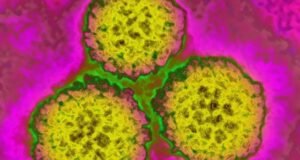
A highly effective screening and treatment program for Helicobacter pylori (H. pylori) infection could reduce global stomach cancer cases by up to 75%, according to a new study published in the journal Nature Medicine.
The study highlights a concerning global trend: rising rates of stomach cancer among people under the age of 50. Researchers from the International Agency for Research on Cancer (IARC), part of the World Health Organization (WHO), found that most future cases are linked to the preventable infection H. pylori – the strongest known risk factor for gastric cancer.
H. pylori is a common bacterial infection that can be effectively treated using antibiotics and proton pump inhibitors. The researchers projected that, without new prevention strategies, 15.6 million new stomach cancer cases will occur globally among individuals born between 2008 and 2017.
Crucially, according to the study published in Nature Medicine, 76% of these cases – about three-quarters – are attributable to H. pylori and are potentially preventable. Asia is expected to carry the highest burden, with an estimated 10.6 million cases, followed by the Americas and Africa.
The study used large-scale simulations that incorporated data from GLOBOCAN 2022 and UN mortality projections to estimate lifetime cancer risk based on age, death probability, and demographic trends.
The authors assert that a 100% effective screening and treatment program could reduce stomach cancer cases by up to 75%. Even interventions with 80-90% effectiveness would still prevent between 60-68% of cases.
These measures are described as cost-effective and feasible, even in low-income countries, with effectiveness comparable to established public health campaigns like HPV or hepatitis B vaccination.
The study strongly recommends investment in national and global screen-and-treat programs and underscores the need to develop a vaccine for H. pylori.
Despite some limitations – including data gaps in low-income regions and assumptions about constant infection rates – the findings emphasize the urgent need for proactive global health strategies to prevent a significant portion of future gastric cancer cases.
 Weekly Bangla Mirror | Bangla Mirror, Bangladeshi news in UK, bangla mirror news
Weekly Bangla Mirror | Bangla Mirror, Bangladeshi news in UK, bangla mirror news







